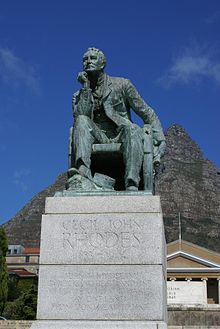There is a lot of dither about the future of journalism. Make no mistake, it is the essential commodity.
If you know what is going on in Gaza, Ukraine or Syria, it is because brave journalists told you. Not the government, not some academic institution, not artificial intelligence, and not hearsay from your friends or from a political party.
The crisis in journalism isn’t that it failed analytically in the last election, or that we — an irregular army of individualists — failed, but that journalism has run out of money and its political enemies have found that the courts (and the fear of libel prosecution) can terrorize the companies that own the media.
In 2016, the gossipy site Gawker was sued by the pro wrestler and political figure Hulk Hogan. The lawsuit was financed by the billionaire investor Peter Thiel.
Now come two suits, filed by President-elect Donald Trump: One that he won against ABC News, and one to be filed against the Des Moines Register. It is reported that conservative interests plan a series of these legal interventions against the media.
This will have a frightening effect on news coverage. When there is fear of prosecution, there is less likely to be investigative news coverage.
So far, the most troublesome of the prosecutions has been the one against ABC News. The network caved in early. It agreed to pay $15 million plus legal fees into a fund for what will be the first Trump presidential library.
Could it be that ABC is owned by Disney, and Disney wants good relations with the incoming administration?
However, a much bigger problem faces the media than the fear of prosecution. It is that the old media, led by local and regional newspapers, is dying. Although there are thousands of podcasts, they don’t take up the slack.
You could listen to an awful lot of podcasts and not know what is going on. State houses and local courts aren’t being covered. The sanitizing effect of press surveillance has been withdrawn and, frankly, God help the poor defendants in a local court where there is a disproportionate desire to plead cases, to avoid honest trials even when there is conspicuous doubt.
I never tire of repeating what Dan Raviv, former CBS News correspondent, said to me once, “My job is simple. I try to find out what is going on and tell people.”
Quite so. However, there is a problem: Journalism needs to be concentrated in a newspaper or a broadcast outlet where there is enough revenue to do the job. Otherwise, you get what I think of as the upside-down pyramid of more and more commentary, based on less and less reporting.
We are awash in commentary, some of it very good and some of it trash. It is all based on news gathered by those news organizations that can afford to employ a phalanx of reporters.
Regional newspapers used to have Washington bureaus and foreign bureaus. At one time, the Baltimore Sun had 12 overseas bureaus. Now it has none.
This is the story nationwide. Fewer people actually cover the news, digging, checking and telling us what they have found.
Throughout the history of journalism, technology has been disruptive, sometimes advantageously and sometimes less so. Modern printing presses developed at the end of the 19th century were important boosters, as was the invention of the Linotype machine in 1884.
On the negative side, television killed off evening papers, and podcasts are taking a toll on radio. Now, the internet and tech companies have siphoned off most of the revenue that supported newspapers, radio and television.
As one can’t have a free and fair society without vibrant journalism, we clearly need a new paradigm which is internet-based news organizations that are large enough and rich enough to do the job in the time-honored way with reporters asking questions, whether it is at the courthouse, the White House or on the battlefield.
There is a clear choice: News and informed analysis, or rumor and conspiracy.


